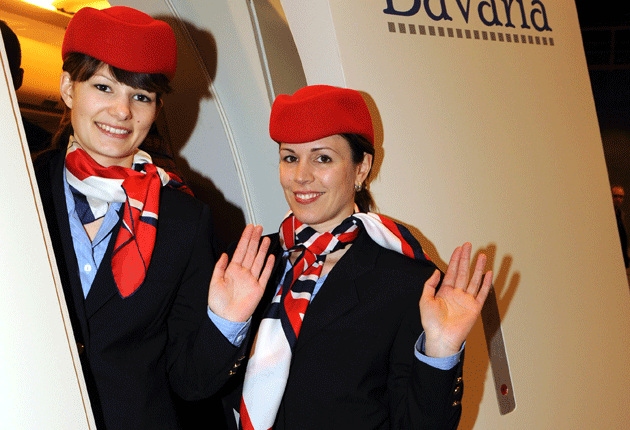
Your support helps us to tell the story
From reproductive rights to climate change to Big Tech, The Independent is on the ground when the story is developing. Whether it's investigating the financials of Elon Musk's pro-Trump PAC or producing our latest documentary, 'The A Word', which shines a light on the American women fighting for reproductive rights, we know how important it is to parse out the facts from the messaging.
At such a critical moment in US history, we need reporters on the ground. Your donation allows us to keep sending journalists to speak to both sides of the story.
The Independent is trusted by Americans across the entire political spectrum. And unlike many other quality news outlets, we choose not to lock Americans out of our reporting and analysis with paywalls. We believe quality journalism should be available to everyone, paid for by those who can afford it.
Your support makes all the difference.
What courses? A plethora of options covering the three fields, including: tourism and leisure; tourism management; hospitality management; events management; travel and tourism; activity tourism management; adventure tourism management; airline and airport management; cruise industry management; culinary arts management; food tourism management; heritage management; nature tourism management; international tourism management.
What do you come out with? BA or BSc
Why do it? "With the blurring of our leisure and work time, tourism and hospitality have become two of the very biggest industrial sectors in the world economy. Tourism has survived economic recessions, terrorism and disease and thrives through the talents of those employed in these industries. A degree in hospitality and tourism will make you think about running an exciting, international and creative industry. Yet the study of tourism and hospitality goes beyond thinking about the business of tourism, and we also examine what the effects of these industries are for the people and places in which tourism has developed." - Dr Graham Miller, head of school of hospitality and tourism management, University of Surrey
Click here to read about what it's like to study Events Management
What's it all about? Courses in these three fields are highly vocational and industry-focused – not to mention incredibly popular. You will study the basics of human resources, marketing, finance and operations, all geared towards your career preferences. For example, a tourism degree tends to focus on travel and management in the context of local economic, environmental and social issues. When it comes to hospitality, expect to learn about industry-specific issues, such as food hygiene and nutrition, as well as getting hands-on experience in the kitchen and on the restaurant floor. Events courses focus on the ever-expanding big business of events (surprisingly), whether these are music festivals, comic conventions or massive corporate conferences. Due to the massive vocational emphasis of these courses, a sandwich year (particularly appropriately-named for catering courses) is compulsory in nearly all cases. With many universities building strong links with the industries’ major players – University College Birmingham students can work with Whitbread or Holiday Inn – graduate prospects can be greatly benefited in this placement year.
Study options: Courses are three years, but the addition of the sandwich makes most four. You will also have to do four years if you are at a Scottish university or taking the part-time option at Greenwich. There is often the option to study alongside a foreign language, in which case, you’ll also be spending an additional year working or studying abroad.
What will I need to do it? Anything goes, generally, although some places recommend business, economics and geography A-levels. If you’re doing hospitality management, an A-level in food technology might also help on the practical side of things. Offers range depending on the university – it’s ABB at Surrey, BBC at Northumbria, or CDD at UWIC and Greenwich.
What are my job prospects? As a group of fairly vocational degrees, they generally have a well-established route into graduate jobs either in the UK or overseas. Some graduates go on to work in travel consultancy, tour operations, destination marketing, visitor attractions management, hospitality provision, events programming and small business development. Others work in hotel management, on cruise ships or in marketing. If you decide the tourism, hospitality and leisure industries aren’t for you on completion of your degree, then you should have acquired a host of business and interpersonal skills that will leave you open for a range of jobs in various other sectors. However, due to the large number of courses now offered across the UK, graduates are slowly outnumbering jobs, meaning employment figures don't look overly positive. According to The Times' Good University Guide 2012, just under 40 per cent of leavers went straight into graduate-level jobs, while 46 per cent were in non-graduate positions andnine per cent were unemployed, which is about the national average. Average graduate salaries are £17,680.
Where's best to do it? Surrey came top overall in the Complete University Guide 2012, followed by Loughborough, Stirling and Strathclyde. Bolton, Loughborough, Lincoln and Ulster hold the top four spots for student satisfaction.
Related courses: Business and management; marketing and advertising; accounting and finance.
Join our commenting forum
Join thought-provoking conversations, follow other Independent readers and see their replies
Comments